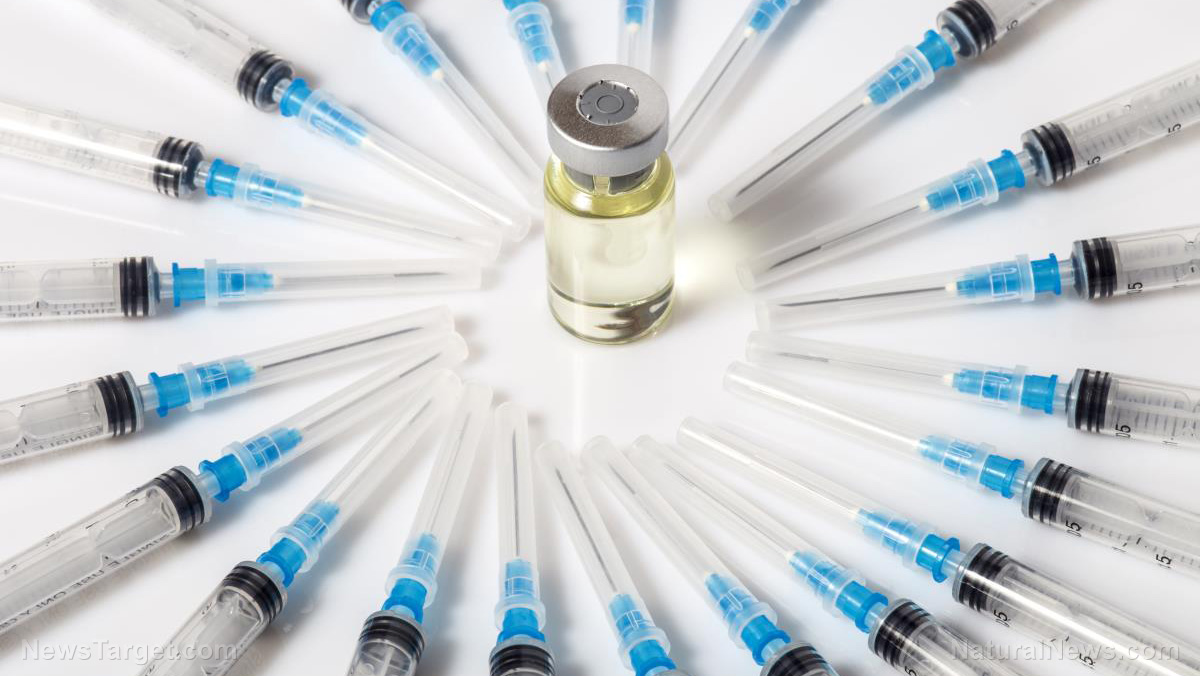
Scientists warn that the Wuhan coronavirus vaccines sold by Pfizer and Moderna can also cause blood clots. The two vaccines, developed using messenger RNA technology, have seen widespread use in many countries. Reports of the vaccines' deadly side effects emerged following bans on Johnson & Johnson and AstraZeneca's adenoviral vector vaccines, which were the first to be linked to blood clots.
According to an April 16 study by the University of Oxford, fewer people developed cerebral venous sinus thrombosis (CVST) after receiving the mRNA vaccines compared to the AstraZeneca vaccine. Only four in 1 million people developed blood clots in the brain after getting the Pfizer and Moderna vaccines, while five in 1 million people developed blood clots after being inoculated with the AstraZeneca vaccine.
But even before the release of the Oxford study, officials from the U.S. Food and Drug Administration (FDA) had already been warned about the potential risks of the mRNA vaccines. Pediatrician Dr. J. Patrick Whelan wrote in a December 2020 comment that the two vaccines "have the potential to cause microvascular injury" to different body parts, such as the brain and heart. Because of this risk, Whelan called for "particular caution" before vaccination is conducted on children.
Whelan's warning and the Oxford paper were completely ignored as U.S. health authorities went ahead with the roll out of the Pfizer and Moderna vaccines. On April 13, FDA Center for Biologics Evaluation and Research Director Dr. Peter Marks told reporters that there were no reported cases of blood clots and low platelet counts among people who received the two mRNA vaccines.
The next day, the Centers for Disease Control and Prevention (CDC) organized an emergency meeting of its Advisory Committee on Immunization Practices. Committee members who attended the meeting lauded the Pfizer and Moderna vaccines as there were "no safety signals" with the two candidates. The members' actions suggested that neither mRNA vaccine was associated with any reports of blood clots – unlike the AstraZeneca and J&J shots.
Reports of people developing post-immunization blood clots only fuels vaccine hesitancy
However, actual data from the Vaccine Adverse Event Reporting System (VAERS) contradicts the claims of both Marks and the CDC committee members. Based on VAERS data from Dec. 14 of last year through April 1 of this year, instances of blood clotting associated with the Pfizer and Moderna vaccines do exist. Of the almost 800 blood clot reports in the system, the Pfizer vaccine was linked to 400 cases while the Moderna vaccine was linked to 337 reports.
The actual experiences of people who received the mRNA vaccines and suffered adverse reactions underscore the risks involved in dealing with these harmful treatments. One such case involved the death of a perfectly healthy Florida doctor in January 2021. Miami obstetrician Dr. Gregory Michael, who died two weeks after getting vaccinated, received the Pfizer vaccine, which was made in partnership with German biotech company BioNTech. (Related: Miami doctor dies after receiving first dose of Pfizer vaccine.)
Three days after receiving the shot, Michael sought medical treatment at Mount Sinai Medical Center where he worked upon seeing red spots on his hands and feet. Doctors then found that he suffered from thrombocytopenia, a condition characterized by abnormally low levels of blood platelets. Michael then received different medical treatments, such as platelet transfusions, but to no avail. He eventually died on Jan. 4 of a hemorrhagic stroke before he could undergo a last-ditch procedure.
The CDC investigated Michael's death and concluded that the obstetrician died of "natural causes." According to an April 8 New York Post report, a joint investigation was conducted by the CDC and the Florida Department of Health, and samples from an autopsy performed on the doctor were examined. The probe concluded that "there is no medical certainty … the shot had anything to do with the condition."
Later, a resident of Brighton, Colorado said he developed blood clots after receiving the Moderna vaccine. Speaking to local news station KDVR, 49-year-old Jeff Johnson said he was rushed to the emergency room after developing two blood clots on his left leg. He said that the blood clots developed a week after he received the Moderna vaccine at a Salud Family Health Centers branch in the city. According to Johnson's doctor, the blood clots diagnosed as deep vein thrombosis could have been caused by the mRNA vaccine the patient received.
Johnson received medical treatment for the blood clots in his left leg. The 49-year-old has since improved and will return to work. He expressed hope that he will not have any other problems following his vaccination. (Related: mRNA vaccines for the Wuhan coronavirus caused blood disorder in at least 36 people.)
Visit VaccineInjuryNews.com to read more about blood clots caused by Wuhan coronavirus vaccines.
Sources include:
Please contact us for more information.





















